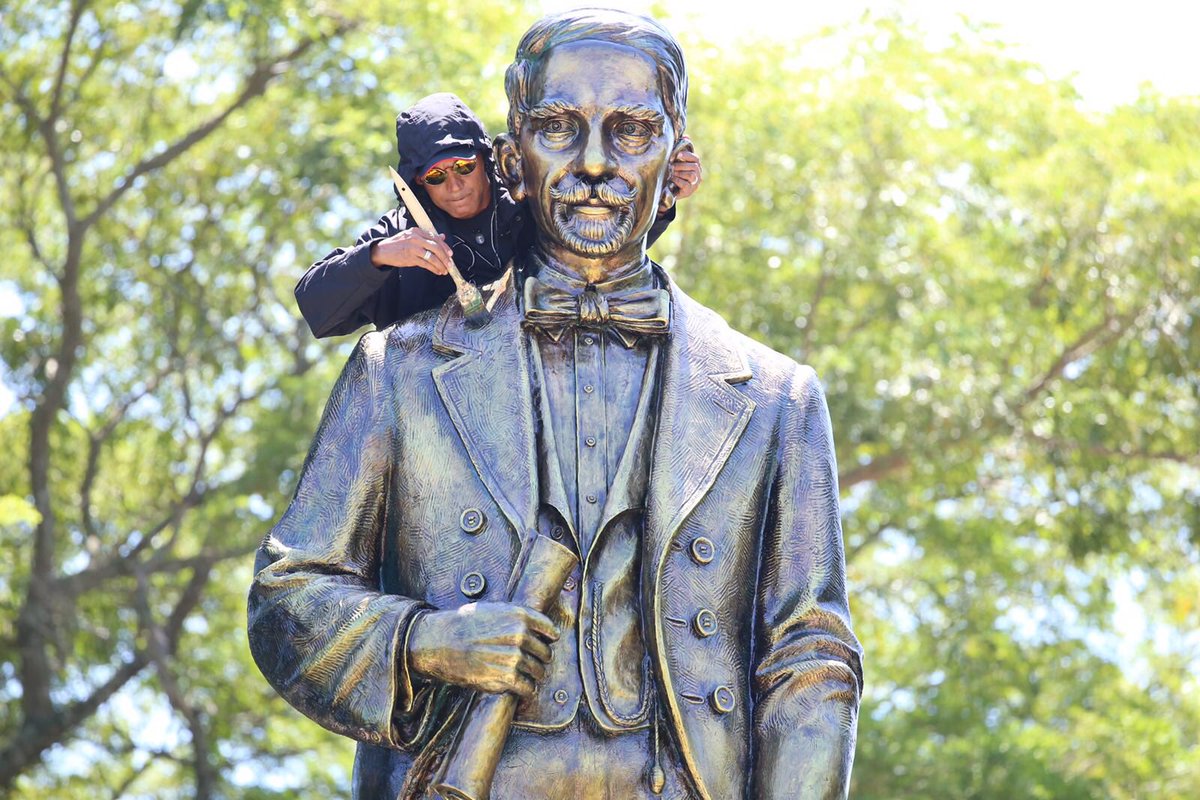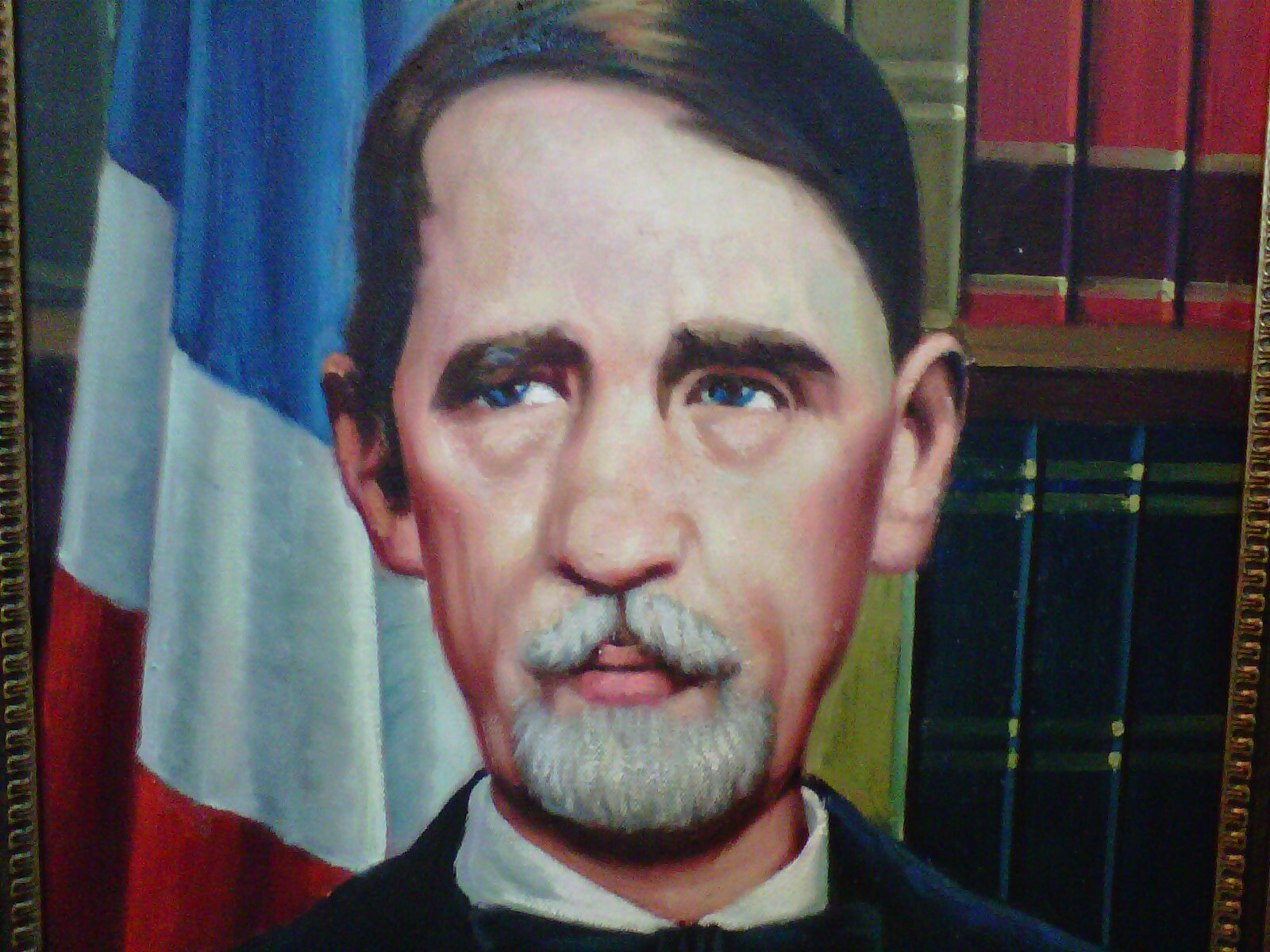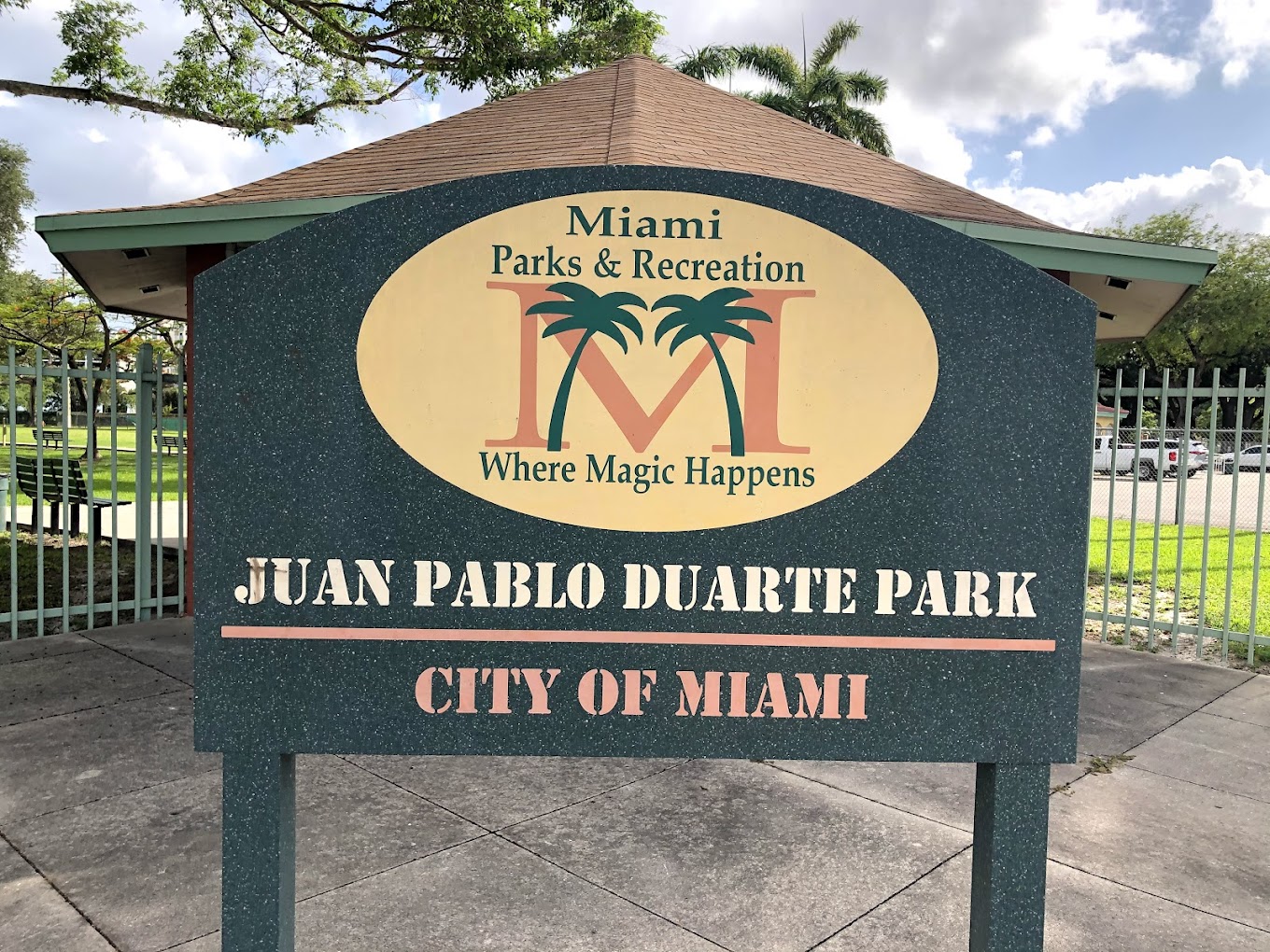When we think about the beginnings of a nation, there are almost always key individuals who stand out, people who, in a way, shaped the very fabric of that country's identity. For the Dominican Republic, one name comes to mind quite clearly: Juan Pablo Duarte. He was born in Santo Domingo, a place that, at the time, was part of Hispaniola, which is now, of course, a significant part of the Dominican Republic. His life, from his birth in 1813 until his passing in 1876, was, in some respects, a continuous effort to bring about a new kind of freedom for his homeland.
This individual, Juan Pablo Duarte, is widely recognized as one of the principal architects, you know, one of the founding fathers, of the Dominican Republic. His involvement in the struggle for independence for Santo Domingo was, quite frankly, central to its success. He played a truly pivotal part in that fight, working to free his people from foreign influence and to establish a place where they could, basically, govern themselves. His dedication to this cause was, apparently, quite remarkable, driving much of the early push for national self-rule.
Many people look to Juan Pablo Duarte as a leader who stood for something bigger than himself. He was, in a way, a guiding force, someone who fought with great determination for the Dominican Republic to become its own place, separate from Haiti. His efforts led to the creation of something truly new, a sovereign nation. His vision for a country that was united and free from outside control was, to be honest, a powerful idea that really resonated with many people during that period.
Table of Contents
- Biography of Juan Pablo Duarte
- What Made Juan Pablo Duarte Stand Out?
- How Did Juan Pablo Duarte Shape a Nation?
- The Ideals of Juan Pablo Duarte - What Influenced Him?
- Why Was Juan Pablo Duarte's Fight for Independence So Important?
- The Enduring Legacy of Juan Pablo Duarte
Biography of Juan Pablo Duarte
Juan Pablo Duarte, whose full life spanned from 1813 to 1876, was, in fact, born in Santo Domingo. This city, as we know, is a central part of what is now the Dominican Republic. His story is very much woven into the fabric of that nation's beginnings. He is seen by many as a true father of his country, someone who dedicated his entire being to seeing it stand on its own two feet. His journey was, in a way, a long and sometimes difficult one, marked by a deep desire for his homeland to be free and to decide its own path.
He was a person who, basically, stood at the forefront of a movement that aimed to bring about big changes. This movement, as a matter of fact, was about getting independence for the Dominican Republic from Haiti. It was a time when the people of Santo Domingo were looking for their own distinct identity, and Juan Pablo Duarte provided the leadership and, you know, the thinking that helped guide them. His work in this area was, quite literally, nation-building, laying down the very foundations of a new state.
People often describe Juan Pablo Duarte as a visionary, someone who could see a future that others perhaps could not yet imagine. He was, too, a liberal thinker, meaning he believed in ideas of freedom and self-governance for the people. These ideas were, apparently, quite influential during his time. His leadership in the fight for Dominican independence, especially in 1844, shows just how committed he was to these principles. He was, in short, a central figure in making that dream of independence a reality.
Personal Details and Bio Data of Juan Pablo Duarte
| Detail | Information |
|---|---|
| Full Name | Juan Pablo Duarte |
| Born | 1813 |
| Place of Birth | Santo Domingo, Hispaniola (now Dominican Republic) |
| Died | 15 July 1876 |
| Known For | Leader of Dominican Independence, Founding Father of the Dominican Republic, Founder of La Trinitaria |
| Key Role | Led the struggle for independence from Haiti in 1844 |
| Influences | Liberal and socialist ideas from Europe |
What Made Juan Pablo Duarte Stand Out?
So, what was it about Juan Pablo Duarte that truly set him apart from others during his time? Well, for one thing, he was, in some respects, a person with a really clear picture of what a free nation could look like. He wasn't just talking about change; he was actively working to create a country that would be sovereign, a place that would make its own decisions without outside interference. This kind of forward-thinking, this ability to envision a future that hadn't yet arrived, was, to be honest, a very powerful quality.
He was also, apparently, a leader who understood the importance of unity. His ideas centered around the concept of a nation that was truly together, where people worked side by side for a common goal. This belief in a united and independent homeland was, quite frankly, a driving force behind everything he did. It wasn't just about throwing off foreign rule; it was about building something new and lasting, something that would stand for generations. That, you know, is a pretty big deal.
Juan Pablo Duarte also had a particular way of thinking that was, basically, quite progressive for his era. He was described as a liberal and socialist thinker, which means he held beliefs that were about more fairness and freedom for everyone. These ideas, which he picked up while studying in Europe, shaped his approach to the independence movement. He wasn't just fighting for land; he was fighting for a set of principles that he believed would create a better society for all. He was, in a way, someone who saw the bigger picture.
How Did Juan Pablo Duarte Shape a Nation?
It's fair to wonder, then, how exactly did Juan Pablo Duarte manage to influence the creation of a whole new country? Well, a lot of it had to do with his ability to bring people together and give them a shared purpose. He was, in fact, a central figure in the fight for independence from Haiti, which was, quite literally, a struggle to establish the Dominican Republic. His actions and his words helped to rally people around the idea of a self-governing homeland. He gave them, you know, a reason to believe in something bigger.
His role wasn't just about fighting on a battlefield; it was also about organizing and inspiring. He helped to establish the framework for a new nation, and his commitment to this idea was, apparently, unwavering. The path to independence was, in some respects, a long and winding one, but Juan Pablo Duarte remained steadfast in his conviction that the Dominican people deserved their own place in the world. He was, basically, a constant source of encouragement and direction during those challenging times.
The Trinitaria and Juan Pablo Duarte's Vision
A key part of how Juan Pablo Duarte shaped the nation was through his leadership of a group called La Trinitaria. This was, basically, a secret society that he founded. It played a truly important role in organizing the push for independence. Through this group, he was able to gather like-minded individuals who shared his vision for a free Dominican Republic. This organization was, in a way, the engine that drove much of the early movement for self-rule.
La Trinitaria was, to be honest, a place where the ideas of independence could grow and where plans could be made without being immediately discovered by those in power. Juan Pablo Duarte, as the leader of this group, provided the intellectual guidance and the strategic direction. He helped to, you know, formalize the commitment to freedom through things like oaths. His work with La Trinitaria shows just how deeply he was involved in every step of the journey toward national sovereignty.
The establishment of La Trinitaria was, in short, a crucial step in the process of gaining independence. It allowed Juan Pablo Duarte to connect with people who were willing to take risks for the sake of their country's future. The society served as a hidden network, spreading the message of freedom and preparing the ground for the eventual declaration of the Dominican Republic. It was, apparently, a very effective way to build support for the cause.
The Ideals of Juan Pablo Duarte - What Influenced Him?
So, where did Juan Pablo Duarte get his ideas from, the ones that shaped his vision for a new nation? It's pretty clear that his experiences and studies had a big impact on his thinking. He was, in fact, a person who looked beyond the borders of his own land for inspiration. This outward gaze, this willingness to learn from other places, was, apparently, a defining characteristic of his intellectual journey. He was, basically, a sponge for new ways of thinking about society and governance.
He was, in a way, someone who absorbed the spirit of change that was sweeping across Europe during his youth. These influences helped him to form a very clear picture of what a truly independent and just society should look like. His ideals weren't just abstract thoughts; they were, to be honest, deeply held convictions that he was willing to fight for. This combination of intellectual curiosity and strong personal belief made him a truly formidable figure in the independence movement.
Juan Pablo Duarte's European Studies and Thought
Juan Pablo Duarte spent time studying abroad in Europe, specifically in Spain, from about 1828 to 1833. This period was, in some respects, a formative one for him. While he was there, he was exposed to liberal and socialist ideas that were quite popular across Europe at the time. These ideas were, apparently, about individual freedoms, about the rights of people, and about how societies could be organized in a more fair and equal way. He was, basically, seeing different ways of living and thinking.
These European influences, you know, really helped to shape his own perspective. He came back with a very clear vision, a sense of what was possible for his own country. His exposure to these progressive thoughts meant that he wasn't just fighting for an end to foreign rule; he was fighting for a specific kind of society, one that valued liberty and justice for all its citizens. He was, in short, a product of both his local circumstances and the wider intellectual currents of his era.
The time Juan Pablo Duarte spent in Europe was, to be honest, a significant part of his development as a leader and a thinker. It gave him a broader outlook and equipped him with the philosophical tools to articulate his vision for a sovereign Dominican Republic. He returned home with, basically, a blueprint for change, a set of principles that would guide his actions and inspire others to join his cause. His studies were, apparently, much more than just academic pursuits; they were preparation for a life of national service.
Why Was Juan Pablo Duarte's Fight for Independence So Important?
One might ask, then, why was Juan Pablo Duarte's struggle for independence so incredibly significant for the Dominican Republic? Well, it was, in fact, about more than just changing who was in charge. It was about defining what it meant to be a Dominican. His fight was, quite literally, for the very identity of a people and a place. Without his efforts, the country might have taken a very different path, or perhaps not even existed in the form we know it today. That, you know, is a pretty big legacy.
His unwavering commitment to creating a free and self-governing nation provided the necessary spark and, basically, the sustained effort needed to achieve such a monumental goal. The independence movement was, in some respects, a long shot, facing many obstacles. But Juan Pablo Duarte's leadership and his clear vision helped to keep the momentum going, even when things seemed difficult. He was, apparently, a source of constant encouragement for those who believed in the cause.
The fight led by Juan Pablo Duarte was, to be honest, a foundational moment. It wasn't just a political change; it was a cultural and social awakening for the people. He instilled in them a sense of pride and a belief in their own capacity for self-determination. This kind of impact, which goes beyond mere governance and touches upon the spirit of a people, is what makes his work so enduring and, you know, so very important in the long run.
Juan Pablo Duarte and the Dominican Republic's Birth
Juan Pablo Duarte played a truly central part in the actual creation of the Dominican Republic. He wasn't just a thinker; he was, basically, a doer who helped to bring a new nation into being. His leadership in the independence movement against Haiti in 1844 culminated in the proclamation of the Dominican Republic. This moment was, in short, the realization of his long-held dream and the efforts of many who followed him.
He is recognized as one of the individuals who founded the Dominican Republic itself, not just an organization within it. His vision for a sovereign nation, one that was united and free from any outside control, became a reality because of his dedication and the path he laid out. He was, apparently, the main person who thought up the idea and then worked tirelessly to make it happen. This act of national creation is, to be honest, a truly monumental achievement.
The establishment of the Dominican Republic stands as a direct outcome of Juan Pablo Duarte's efforts. He gave his people a country, a place where they could, basically, forge their own destiny. This act of founding, of bringing a new state into existence, is why he is revered as a towering figure in the nation's history. His commitment to this goal was, in a way, absolute, leading to the birth of a new independent state.
The Enduring Legacy of Juan Pablo Duarte
The influence of Juan Pablo Duarte, it's pretty clear, stretches far beyond his own lifetime. He stands as a truly towering figure in the history of the Dominican Republic, someone who is, basically, revered as the country's founding father. His name is, in fact, very much connected with the ideas of freedom and national identity within the Dominican Republic. He gave his people a sense of who they were and what they could become as a distinct nation.
His vision for a sovereign nation, one that was united and free from any foreign influence, continues to inspire. This idea, this commitment to self-determination, is, apparently, a core part of the Dominican spirit. The principles he stood for, those liberal and socialist ideas he embraced, have, in some respects, shaped the ongoing aspirations of the country. He left behind a powerful set of ideals that still resonate with people today.
Juan Pablo Duarte's life and work are, to be honest, a constant reminder of the importance of fighting for what you believe in, especially when it comes to the freedom and identity of a people. His story is, in a way, a foundational narrative for the Dominican Republic, a tale of courage and conviction that continues to be told and retold. He truly is, you know, a central figure in understanding the very beginnings of that nation.
Related Resources:



Detail Author:
- Name : Adalberto Torp
- Username : afton.heathcote
- Email : hthompson@gmail.com
- Birthdate : 1992-03-29
- Address : 74399 Hudson Burg Apt. 941 Pascalebury, IN 00556-0955
- Phone : 309.642.2422
- Company : Hessel, Cruickshank and Wilderman
- Job : Occupational Health Safety Specialist
- Bio : Optio aut vitae error vitae dolores vero. Voluptatum dolor quibusdam dolore sunt iure. Excepturi et velit beatae nostrum at.
Socials
tiktok:
- url : https://tiktok.com/@smithamc
- username : smithamc
- bio : Ut perspiciatis distinctio maiores exercitationem non asperiores rerum.
- followers : 4056
- following : 2210
facebook:
- url : https://facebook.com/candida9524
- username : candida9524
- bio : Voluptas deserunt rem autem debitis cupiditate qui.
- followers : 4514
- following : 2895
instagram:
- url : https://instagram.com/smithamc
- username : smithamc
- bio : Veniam et facere quod saepe. Unde sit vitae animi dolores eaque itaque dolore.
- followers : 6104
- following : 1146
linkedin:
- url : https://linkedin.com/in/candida_xx
- username : candida_xx
- bio : Et ex quis autem consequatur eos fuga.
- followers : 6008
- following : 1257
twitter:
- url : https://twitter.com/smithamc
- username : smithamc
- bio : Ut quia ut exercitationem. Ipsum vel magnam dolor velit explicabo vel laudantium repellat. Ad quas velit ea deleniti quo.
- followers : 1684
- following : 2720